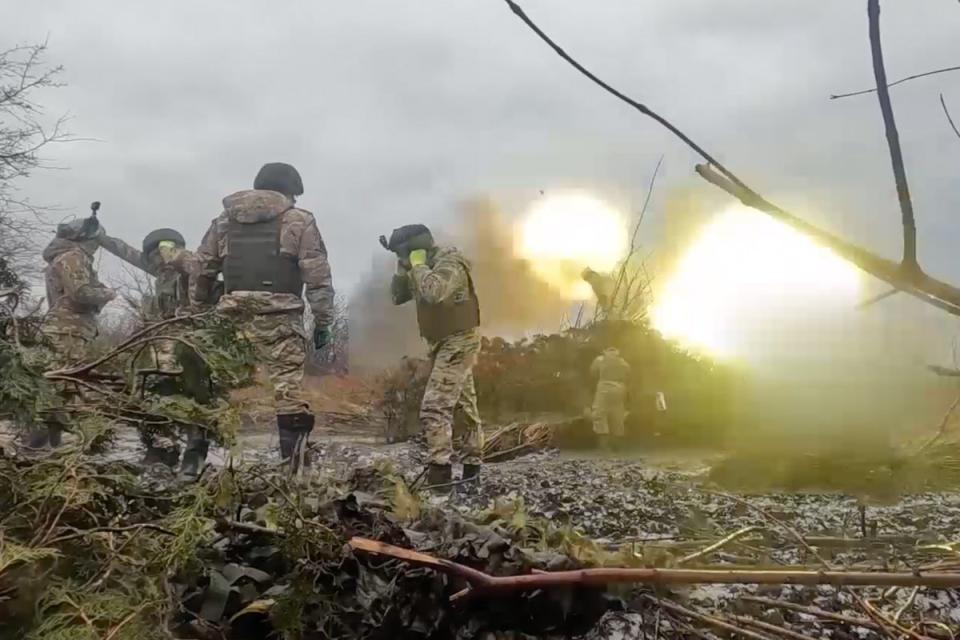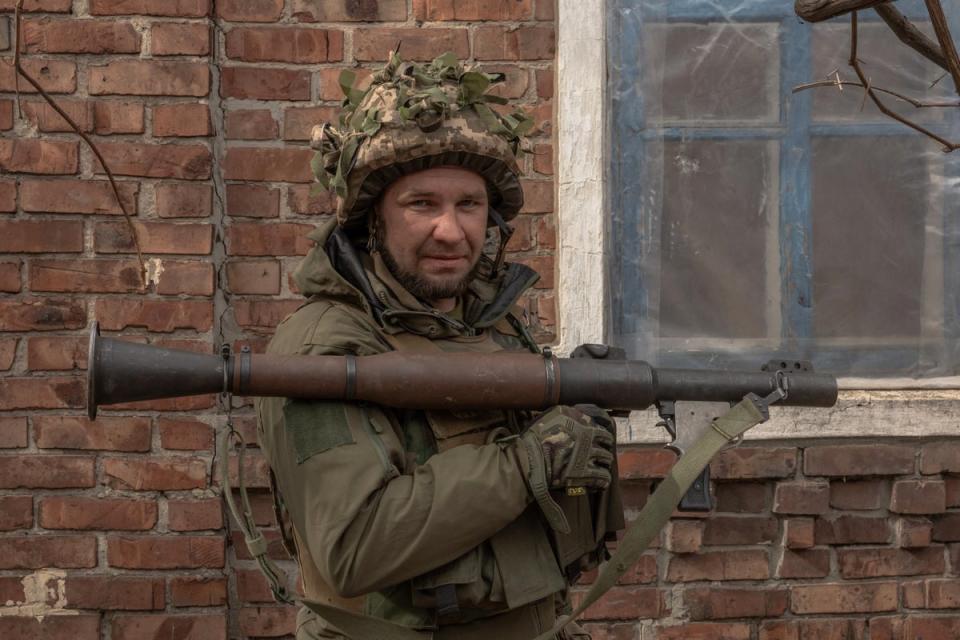Suspected spies arrested in Germany over Russian plot for sabotage attacks on military aid to Ukraine

German police have arrested two suspected Russian spies for allegedly planning sabotage attacks – including on US military facilities – in an effort to undermine weapon and aid deliveries to Ukraine.
The two German-Russian nationals, identified only as Dieter S and Alexander J in line with German privacy rules, were arrested in the Bavarian city of Bayreuth, federal prosecutors said.
Dieter S is alleged to have been discussing possible acts of sabotage in Germany with a person linked to Russian intelligence since October. The suspect declared himself willing to carry out bombing and arson attacks on infrastructure used by military and industrial sites in Germany, according to prosecutors. He gathered information on potential targets, they added. Alexander J allegedly helped him to do so (starting in March at the latest), while Dieter S scouted out some of the sites, took photos and videos of military equipment and passed the information to his intelligence contact.
"Our security authorities have prevented possible explosive attacks that were intended to target and undermine our military assistance to Ukraine," interior minister Nancy Faeser said. "It is a particularly serious case of alleged spy activity for [Vladimir] Putin's criminal regime."
Der Spiegel magazine reported that the facilities were believed to have included the Grafenwoehr army base in Bavaria, where Ukrainian soldiers receive training to use US Abrams tanks. The US has a significant military presence in Germany.
Germany has become the second-biggest supplier of weapons to Ukraine after the US since Russia started its invasion of Ukraine more than two years ago. Tens of billions of dollars in fresh military aid from Washington have been held up for months by political infighting in Congress. That has increased pressure on the front lines in Ukraine, with Kyiv’s troops running out of ammunition and weapons as Russian forces intensify their assaults.

"We know that the Russian power apparatus is also focusing on our country," justice minister Marco Buschmann wrote on Twitter/X after the arrests, adding that Germany “must react resolutely to this threat”.
The prosecutors suspect Dieter S was a fighter for Russian-backed forces in the eastern Ukrainian region of Donetsk from December 2014 to September 2016. He was in possession of a firearm, prosecutors said.
A judge ordered Dieter S to be kept in custody pending a possible indictment. Alexander J was also ordered to be held at a different hearing. The homes and workplaces of the two men were being searched by police.
Germany summoned the Russian ambassador over the arrests. Earlier, the Kremlin said it had no information about the issue.
It is the latest in a string of spying scandals in Germany. In a separate case, prosecutors last month charged an officer in Germany’s military procurement agency with attempting to pass secret information to Russian intelligence.
Also in March, a military conference about Ukraine which involved officers discussing Germany’s military tactics and its allies was leaked by Kremlin-controlled TV. The leak was an embarrassment for Berlin, with Germany’s defence minister, Boris Pistorius, saying at the time that one of the generals on the call may have broken security protocol by using a non-secure line to dial in.

Mr Pistorius added that the interception by Russia, likely via a random sweep for insecure data, was part of Moscow's attempts to “drive a wedge” between European and US allies over support for Ukraine. “[We] will not allow Putin to get on our nerves,” he said.
Poland, a hub for deliveries to Ukraine, also said last month that it had broken up a Russian espionage network operating in the country and detained a number of people it said were preparing acts of sabotage and monitoring rail routes to Ukraine.
“The suspects conducted intelligence activities against Poland and prepared acts of sabotage at the request of Russian intelligence,” the country’s interior minister, Mariusz Kaminski, said.
“Internal security agency officers secured cameras, electronic equipment, as well as GPS transmitters that were to be mounted on transports with help for Ukraine,” Mr Kaminski said.
News of the arrests in Germany coincided with a surprise trip by Robert Habeck, Germany’s vice chancellor and minister for the economy, to Ukraine. Mr Habeck said he was there “at a time when Ukraine needs all the support it can get in its fight for freedom”.
Ms Faesern vowed that Germany will continue to thwart any such Russian threats.
“We will continue to give Ukraine massive support and will not let ourselves be intimidated,” she said.
Reuters and Associated Press contributed to this report


